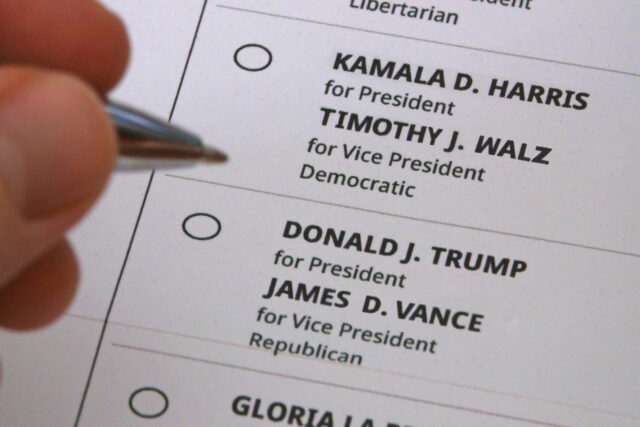Donald Trump vs. Kamala Harris: Google ramps up efforts to protect Presidential Election integrity

As the United States nears the November elections, Google is introducing a series of new initiatives designed to ensure that voters have access to reliable information and that its platforms remain secure against potential threats. Laurie Richardson, Vice President of Trust & Safety at Google, has outlined the company's latest efforts in this regard.
Google is continuing its focus on helping users find trustworthy information related to the electoral process. As part of this, Google Search will provide users across the U.S. with aggregated resources from state election offices, sourced through Democracy Works. Additionally, YouTube will feature information panels about federal election candidates, offering details such as political party affiliation and links to official channels. Google Play has also introduced a new badge to help users identify apps that are from official government agencies, including those related to voting.
To combat misinformation, particularly as it relates to elections, Google is placing restrictions on its AI products. This includes limiting the responses for election-related queries in its Gemini apps and ensuring that AI-generated content on platforms like YouTube is clearly labeled and transparent.
Google's threat intelligence teams are actively monitoring for potential cyber-attacks and influence operations, with a particular focus on threats that use AI to manipulate public opinion. The company is leveraging its own AI tools to detect and address harmful content more effectively. In an effort to protect high-risk users, such as campaign workers and elected officials, Google has integrated passkeys into its Advanced Protection Program and has distributed 100,000 Titan security keys. Google is also promoting the use of its Project Shield service to safeguard websites against DDoS attacks during the election period.
In a move to increase transparency around AI-generated content, Google is expanding its SynthID watermarking technology to cover a broader range of media formats. The company has also introduced automated disclosures for AI-generated YouTube ads, aiming to ensure that users are aware when they are viewing synthetic content. Google's participation in the Coalition for Content Provenance and Authenticity reflects its commitment to providing clear and accurate information about AI-generated content.
These measures are part of Google's broader effort to support a safe and transparent electoral process, ensuring that users have access to accurate information while protecting high-risk individuals and platforms from potential security threats as the 2024 U.S. election approaches.
Image Credit: 329850536 @ Kilmermedia | Dreamstime.com